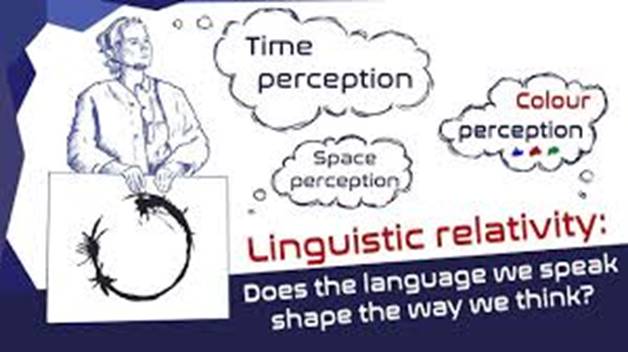

Language, far from being a mere tool for communication, plays a crucial role in shaping our thoughts, culture, and worldview
The Intricate Dance of Language and Thought
Have you ever pondered how deeply language influences our thoughts and perceptions? Language, far from being a mere tool for communication, plays a crucial role in shaping our thoughts, culture, and worldview. This is a concept embedded in the Sapir-Whorf hypothesis, a theory of linguistic relativity that posits that the structure of a language affects its speakers' worldview or cognition.
Many studies and research have demonstrated how language shapes our thought processes. For instance, speakers of languages that use cardinal directions to convey spatial relations are remarkably good at staying oriented, even in unfamiliar places. This is because their language constantly forces them to be aware of their surroundings.
The Cultural Imprint of Language
Language not only shapes our thoughts but also influences our culture. It reflects cultural values and societal norms. Each word, phrase, and idiom is the manifestation of a society's history, beliefs, and values.
Take the Japanese language, for instance. It is steeped in the country's culture of respect and hierarchy. The language has different levels of politeness, and the version one uses depends on their relationship with the person they are speaking to.
A contrasting example would be the Pirahã language spoken by a small tribe in the Amazon. Their language reportedly lacks words for specific numbers and colors, reflecting their simplistic lifestyle and limited material needs. This demonstrates how language can mirror the cultural practices and lifestyle of a society.
Language: A Dynamic Entity
Language is not a static cultural artifact. It evolves continually, reflecting changes in societal norms, beliefs, and values. The dynamic nature of language ensures that it remains relevant and reflective of the times.
For instance, in recent years, English speakers have become more conscious about using gender-neutral language. Words like 'firefighter' have replaced 'fireman,' and 'chairperson' is now preferred over 'chairman.' This shift in language mirrors the societal shift towards gender equality.
Language, Thought, and Perception
Language can also profoundly influence our perception of reality. Every language has a unique way of categorizing and labeling the world, which can affect how we see things.
For example, in Russian, there are two different words for different shades of blue. It is suggested that Russian speakers are therefore better at distinguishing between these shades, as their language provides them with the vocabulary to do so.
Similarly, the Guugu Yimithirr language in Australia does not have words for 'left' and 'right,' instead, they use cardinal directions. Thus, speakers of this language are constantly aware of their orientation in relation to the cardinal directions.
The Power of Bilingualism
Bilingualism offers a unique perspective into the interplay between language, thought, and culture. Bilingual individuals often report that they feel like a different person when they switch languages. This feeling is likely due to the different cultural contexts and ways of thinking associated with each language.
Bilingualism also provides cognitive benefits. Studies suggest that bilingual individuals have better attention control and cognitive flexibility. This cognitive advantage is thought to stem from the constant need to switch between languages, which exercises the brain.
The Final Word
In conclusion, language is a powerful tool that shapes our thoughts, perceptions, and culture. It is a mirror reflecting our societal norms and values. It is also a lens through which we view and categorize the world. As we navigate through the ever-evolving linguistic landscape, it is crucial to remember the profound impact language has on our cognition and cultural identity. - Words Trivia

